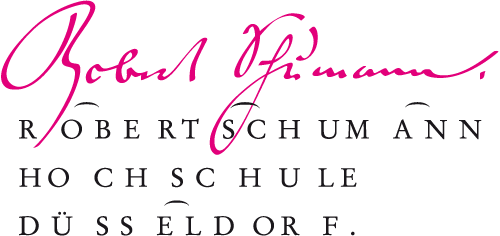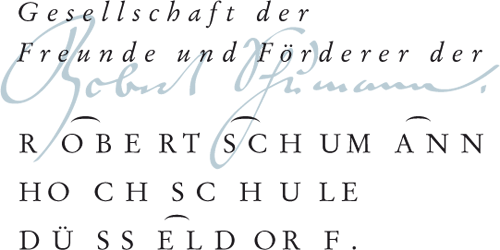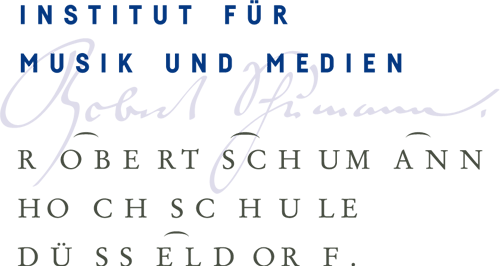Requirements for the Audio and Video bachelor’s program
Bachelor Program in Audio and Video
Admission to the Audio and Video program depends on:
i) determination of artistic aptitude for media-related work (based on work samples and an in-person interview), and
ii) determination of artistic and musical ability in the intended field of study, whether instrument or voice (based on an audition).
Determination of aptitude takes place in two stages: pre-selection and in-person audition.
1. Pre-Selection
As part of the application process, vocalists and instrumentalists must submit video recordings of their work along with three work samples relevant to the subject concentrations of the Audio and Video program. Based on these submissions, the Examination Committee will invite selected applicants to in-person auditions.
All application materials must be submitted digitally using the Muvac portal. Additional information and instructions can be found here.
Requirements for video submissions in the intended field of study (instrument or voice can be found here.
Requirements for the work samples:
The Audio and Video program offers seven concentrations, divided into two categories. A work sample from one of the two concentrations listed in Category 1 must be submitted. Additional work samples from the other listed focus areas in both categories may also be submitted.
Category 1: Classical Music Recording / Music Production
Category 2: Music and Audiovisual Media / Visual Music / Media Composition / Music Informatics
Each work sample must fit clearly within the relevant subject concentration; unless otherwise noted, it must be accompanied by a written explanation on the conditions of its creation. The following individual requirements must be observed for each concentration:
Classical Music Recording: An art music production or live recording (i.e. chamber, orchestral, or choral works – no popular music!). Applicants who wish to showcase range may submit several smaller works totaling up to ten minutes maximum in length. Submissions must be accompanied by a written document (two DIN A4 pages maximum) containing the following information: work, performer(s), recording date and location, equipment used, microphone setup, and a brief description of the recording and post-production process. Contact person for this concentration: Prof. Dagmar Birwe
Media Composition: Portfolio containing (at least one) original composition or musical arrangement of a functional nature (i.e. for film/image/text), either as recorded production and/or sheet music. A short description of the project and the applicant’s creative process must also be submitted. Contact person for this concentration: Prof. Andreas Grimm
Music Informatics: A piece of computer music* or algorithmic sound art – a composition of up to ten minutes in length with accompanying text, for example, or an interactive work as executable standalone software accompanied by simple directions, technical documentation, source code, and theoretical foundations. In the case of installations or site-specific work, documentation from which the work can be understood must also be submitted (e.g. simple film recording as QuickTime movie). Contact person for this concentration: Prof. Julian Rohrhuber
*If a computer or DAW (e.g. Logic, Nuendo, etc.) is used in the composition/production of a piece of jazz or popular music, it is not in and of itself considered “programming,” nor is the piece of music thus necessarily considered “computer music.” Such pieces may fit better in the Music Production concentration.
Music Production A jazz or pop production (recording with microphones, midi/computer-assisted music production, live recording, or combination of the above). Please submit no more than two tracks with a maximum total length of seven minutes. An accompanying text must also be submitted (two pages maximum) containing the following information: title, performer(s), recording location and time, equipment used, and a brief description of the recording and post-production process. Contact person for this concentration: Prof. Jens Dreesen
Music and Audiovisual Media: One excerpt each from two or three different film works (e.g. documentary movie, music clip, multi-camera recording, feature film, experimental film). Together, the excerpts may not exceed nine minutes in length. The applicant must have directed or been otherwise responsible for the main design of all submissions. The theme or content of the audiovisual works themselves need not be music related. A short text (half a page) on concept and creation must accompany each excerpt, including a description of the application’s contribution to the work, a list of other people involved and what they contributed (team list), an account of when and in what context the work was created, and how long the overall work is. Format: QuickTime movie, readable on both Mac and PC. Contact person for this concentration: Prof. Enrique Sánchez Lansch
Visual Music: A visualization of music or sound in moving images (video) or animations (motion graphics), maximum three minutes in length. Sound and image must have a clearly recognizable relationship to one another. Format: MPEG file, readable in VLC on both Mac and PC. Contact person for this concentration: Prof. Dr. Heike Sperling
In the case of dual-degree applications for the two media-related degree programs (Music and Media and Audio and Video), the requirements for the Audio and Video program specified here apply.
2. In-Person Audition
The in-person audition consists of two parts:
- Artistic presentation in instrument or voice. The same repertoire specifications apply as for the pre-selection, and the same works can be presented as were submitted in the pre-selection.
- Thoughtful discussion of the artistic presentation and the concentration-relevant work samples submitted.
The Examination Committee reserves the right to hear part or all of the prepared pieces.
If applicants pass the in-person examination, they will be asked to sit for exams in music and aural theory.
Fon: +49.211.49 18 -0 www.rsh-duesseldorf.de


